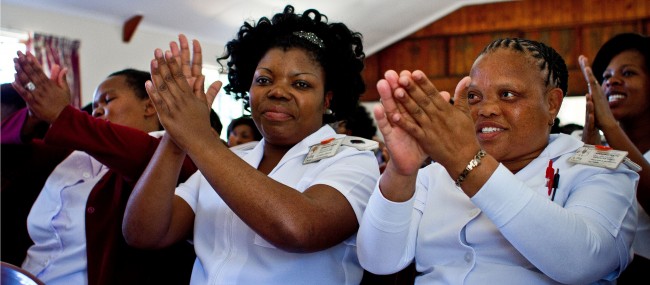According to WHO, there are 3,5 million children globally who don’t live to celebrate their fifth birthday each year. This is due to preventable and treatable infections such as diarrhoea and pneumonia.
“By teaching mothers and birth attendants how hand washing with soap can prevent disease, we can improve neonatal survival rates and put more children on the path to reach their fifth birthday – a key milestone that millions of children don’t reach every year,” says Ashveer Mahabeer, Brand Building Manager of Lifebuoy.
Wash your hands before handling your newborn
Young babies have not built up a strong immune system yet, so they are susceptible to infection. Make sure that everyone who handles your baby also has clean hands.
In particular wash hands with soap at the following occasions:
- Before handling preterm babies
- During the first week while the umbilical cord is still attached
- When anyone has a cough/cold
- After returning from outside
- After cleaning or touching the baby’s faeces;
- After using the bathroom
Prevent diaper rash by changing your baby’s nappy frequently
Always remember to wash your hands with soap and running water after handling dirty nappies to stop the spread of infection.
Don’t expose your baby to large groups of people before six weeks old
The more people your baby is exposed to, the more likely it is that he will come in to contact with someone who is sick, especially during flu season. Ensure that you prevent the spread of everyday infections such as common colds, flu and digestive disorders by adopting healthy hand washing routines – keeping yourself healthy is important when you are nursing a newborn.
Be careful when pets are around your newborn
Don’t leave your baby alone with pets or near pets. Make sure pets do not get into the cot with your baby. When your baby is very young, don’t allow the family dog or cat to lick your baby’s face. This could transmit infectious material (such as faeces) into the baby’s mouth or eyes. Make sure that anyone who has come into contact with your pets washes their hands thoroughly before touching your newborn.
Sanitise, sanitise, sanitise
To protect your newborn from microbes that could be ingested during feeding, sanitise all parts of the bottles and feeding equipment (including breast pump attachments). To avoid contamination, it’s imperative to wash your hands when handling any of this equipment.
Develop daily healthy hand washing routines
- Wash your hands with soap and running water – a simple splash under water is not effective in destroying germs
- Really lather the soap to make sure you are getting all the necessary germ protection required
- Wash your hands for approximately 30 seconds to really get rid of the harmful germs that cause infection
- It is key to wash your hands before handling food, after using the bathroom and in the shower/ bath.
Lifebuoy has initiated a new awareness programme in a rural community in KZN, which illustrates the importance of developing daily hand washing routines to improve hygiene standards. For more on the programme, click here.
Latest posts by Contributor (see all)
- How to treat your toddler’s burn - April 16, 2014
- The milestones of your little rocket scientist - April 14, 2014
- Decoding your prenatal vitamin - April 14, 2014
-
No Comments" href="https://all4baby.co.za/0-6-months/newborn-basics/380/10-ways-calm-fussy-baby/">
10 ways to calm a fussy baby
-
No Comments" href="https://all4baby.co.za/uncategorized/363/newborn-baby-weeks-one-four/">
Your newborn baby: Weeks one to four
-
No Comments" href="https://all4baby.co.za/pregnancy/multiples-pregnancy/342/pregnant-twins-one-two/">
Pregnant with twins: It’s not one, but two!
-
No Comments" href="https://all4baby.co.za/0-6-months/newborn-basics/291/newborn-essentials-pick-right-baby-wipe/">
Newborn essentials: pick the right baby wipe

 Saving...
Saving...